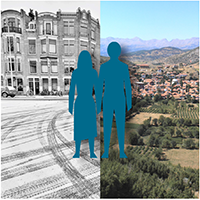About the project
A growing number of people live partly in one country and partly in another, for instance splitting work and leisure between two countries, spending part of the year in each, or living mainly in a country other than the one that provides social security. We call such lives 'transnational lives'. Some people are able to spend a lot of time in each country every year. Others are limited by work or children's school, for instance, but invest time and resources in both countries.
We are interested in transnational living because it concerns what it means to be part of a society, and because it as an aspect of globalization. We believe that more knowledge can help develop better policies and help reduce unnecessary bureaucratic frustrations. It is also essential for the welfare state to find ways of accommodating the fact that many people live partly within it and partly outside it.
Visit the project's homepage to see the latest publications and activities.
Objectives
The work is guided by the following objectives:
- Document the experiences, joys, and frustrations, of living partly in one country and partly in another.
- Find out who wants to live in two countries, as opposed to settling completely in one.
- Examine how people who live in two countries experience the encounter with state institutions in each country.
- Examine how state institutions in the Netherlands and Norway engage with people who lead transnational lives.
- Explore how the welfare state can approach the benefits and challenges of transnational living.
Background
The project is carried out by researchers in Norway and the Netherlands. Research within the project will explore transnational lives that are lived partly in one of these two countries and partly in another country.
Partners
- Peace Research Institute Oslo (PRIO)
- Department of Sociology, Erasmus University Rotterdam
Funding scheme
The total grant award was for NOK 12 000 000.
Project period
October 2014 - July 2019
